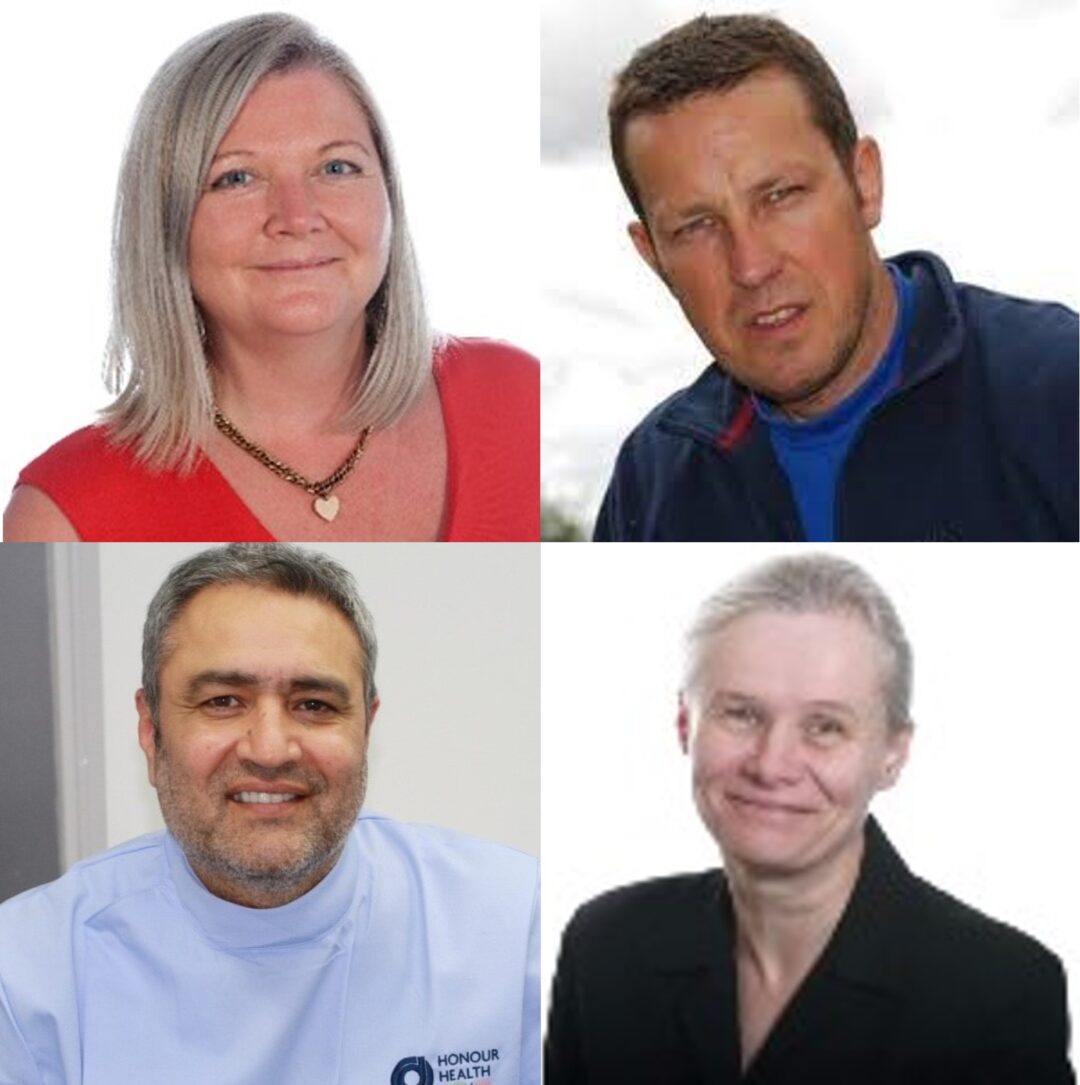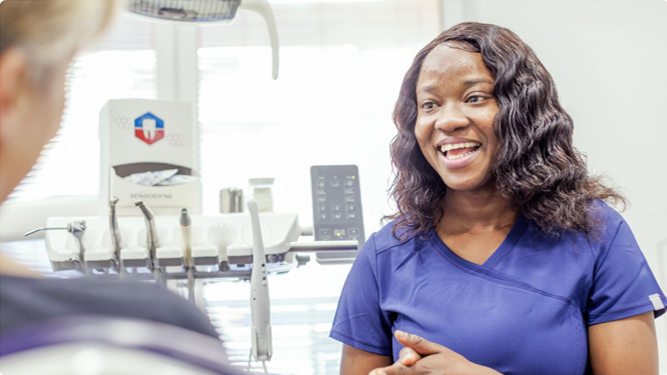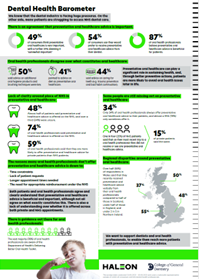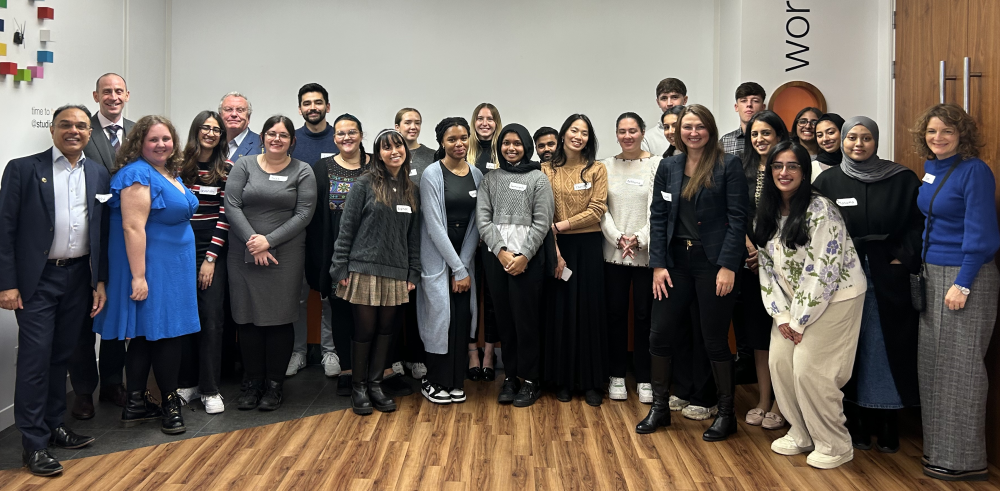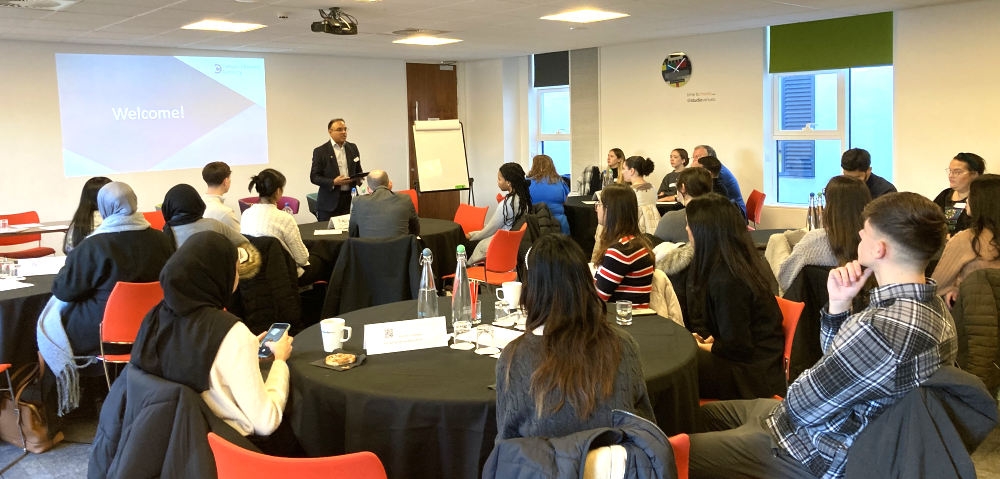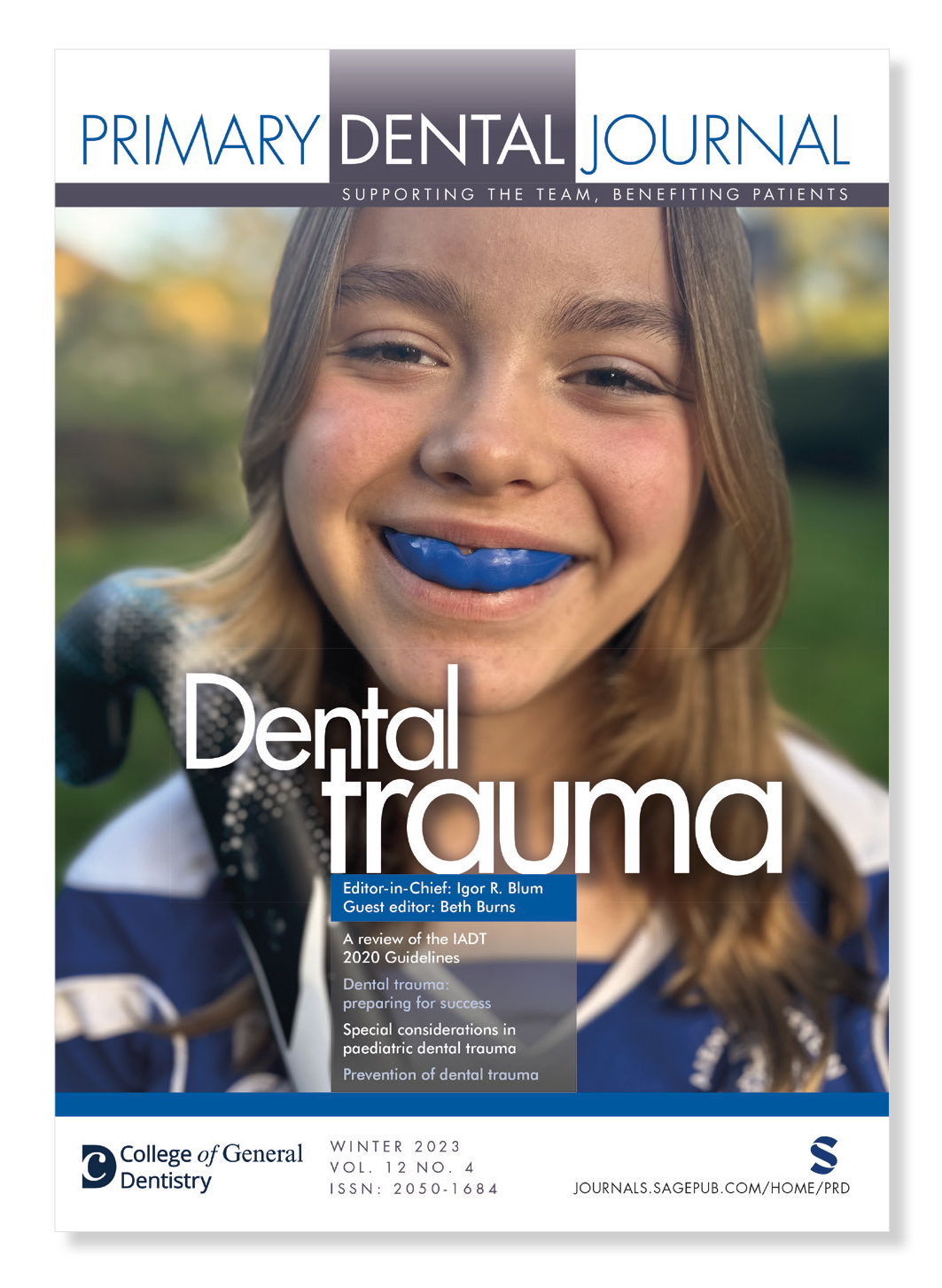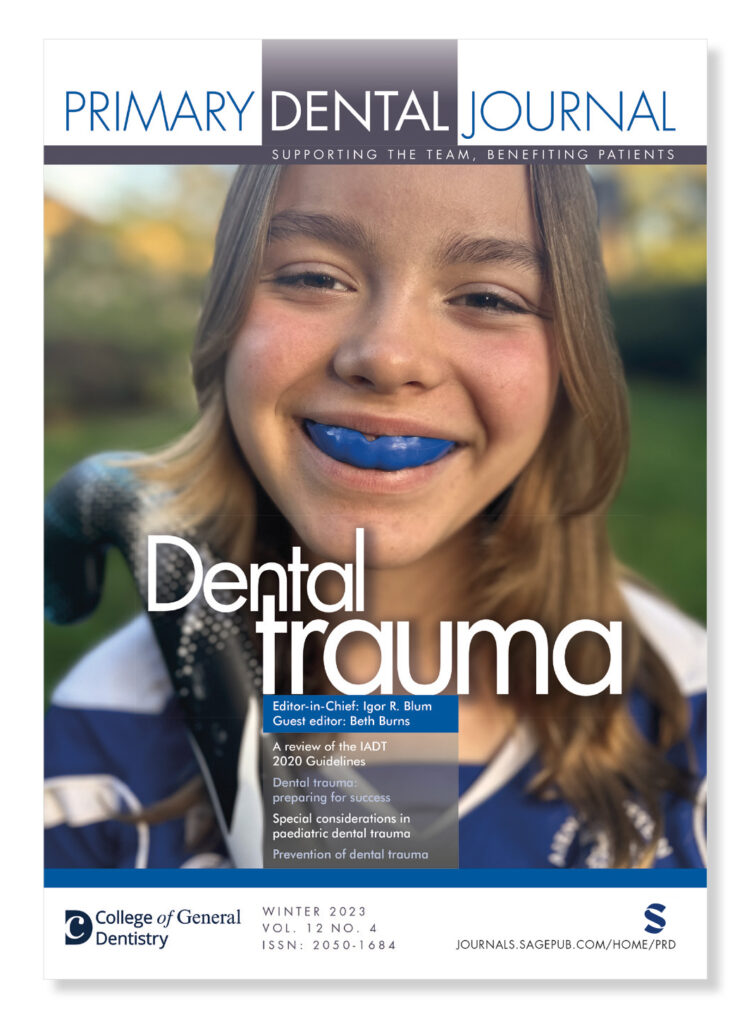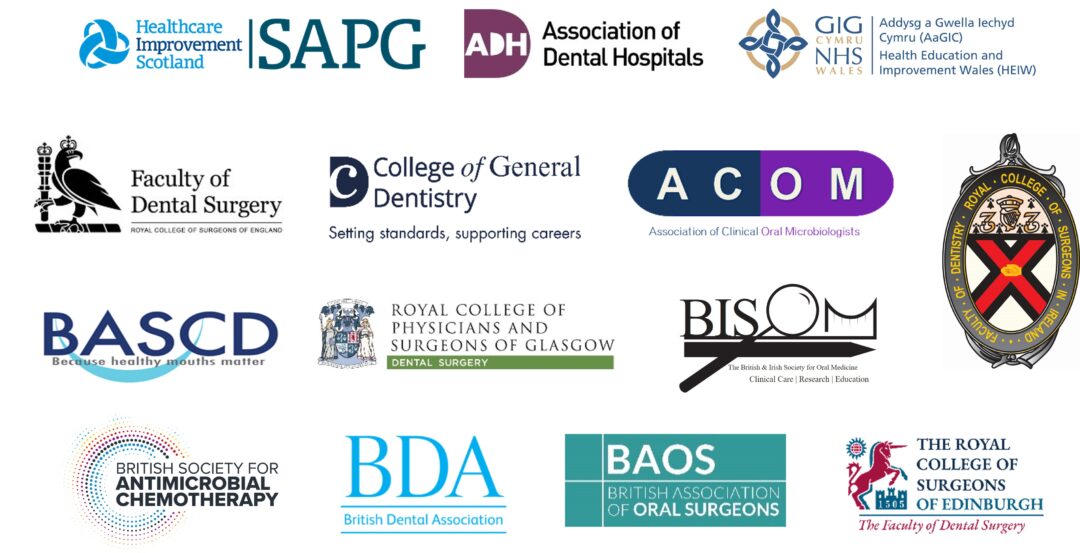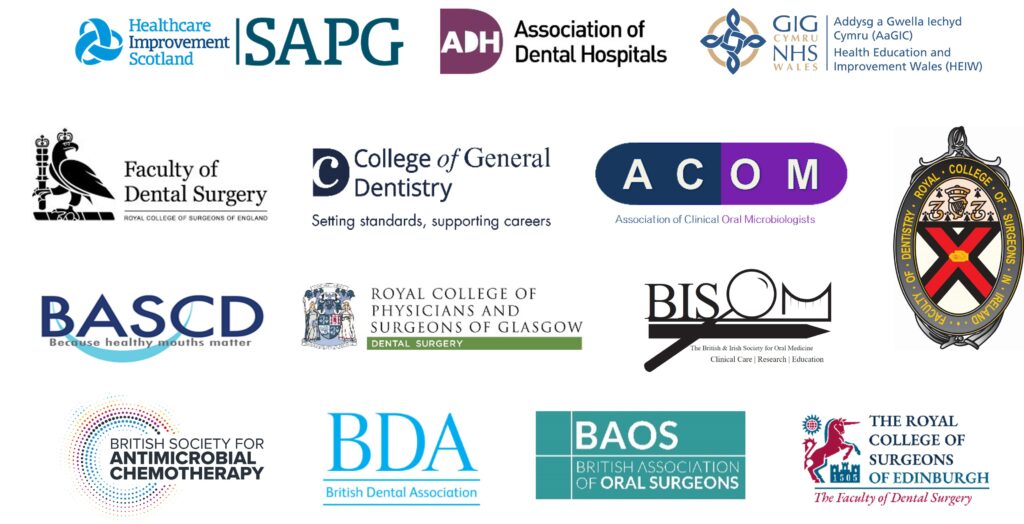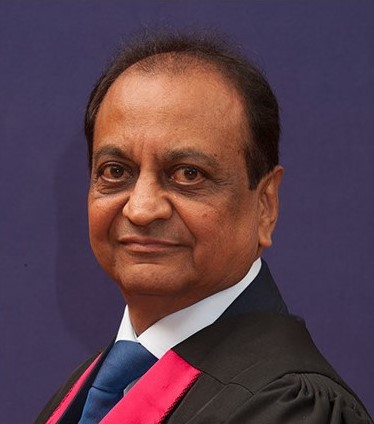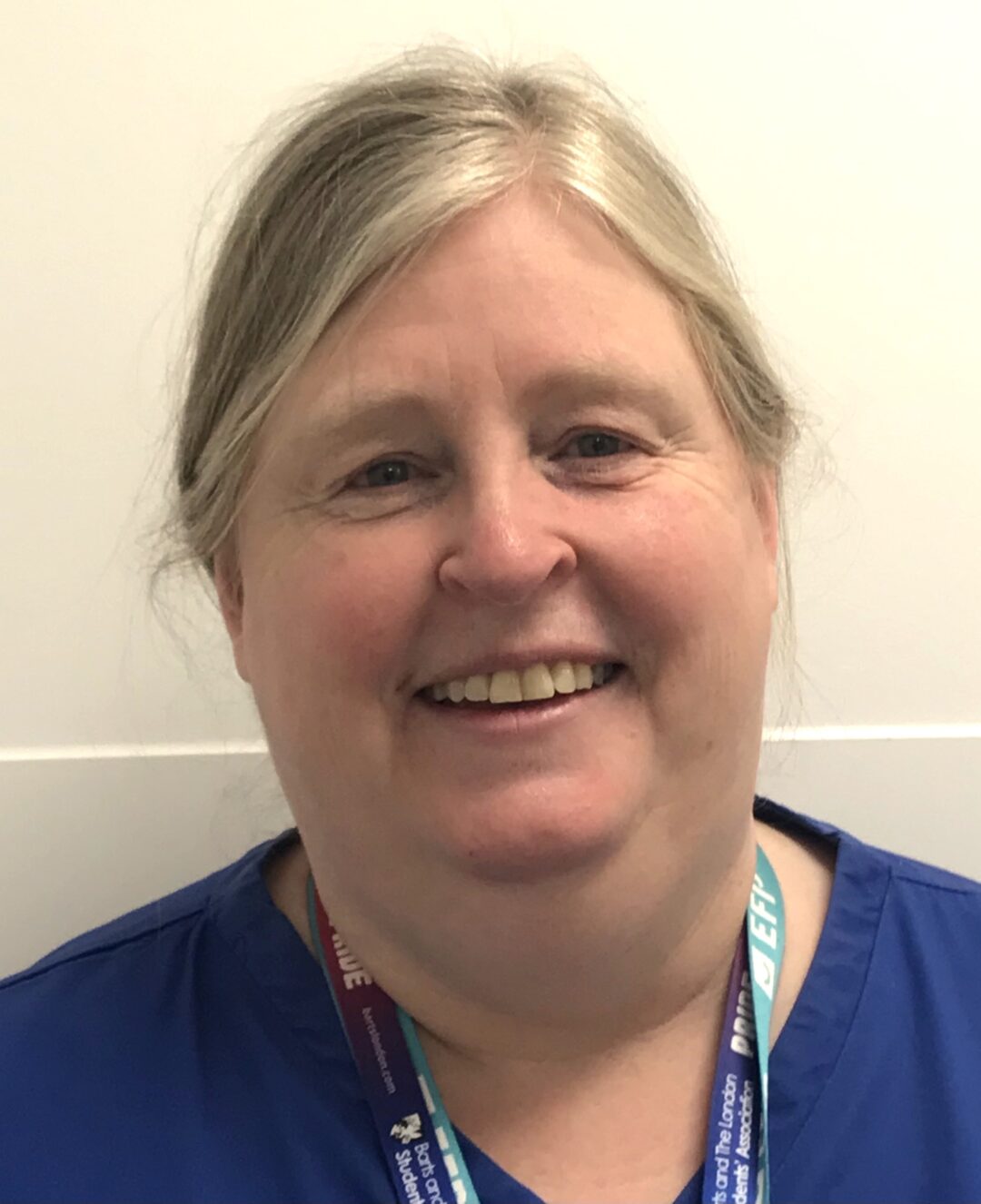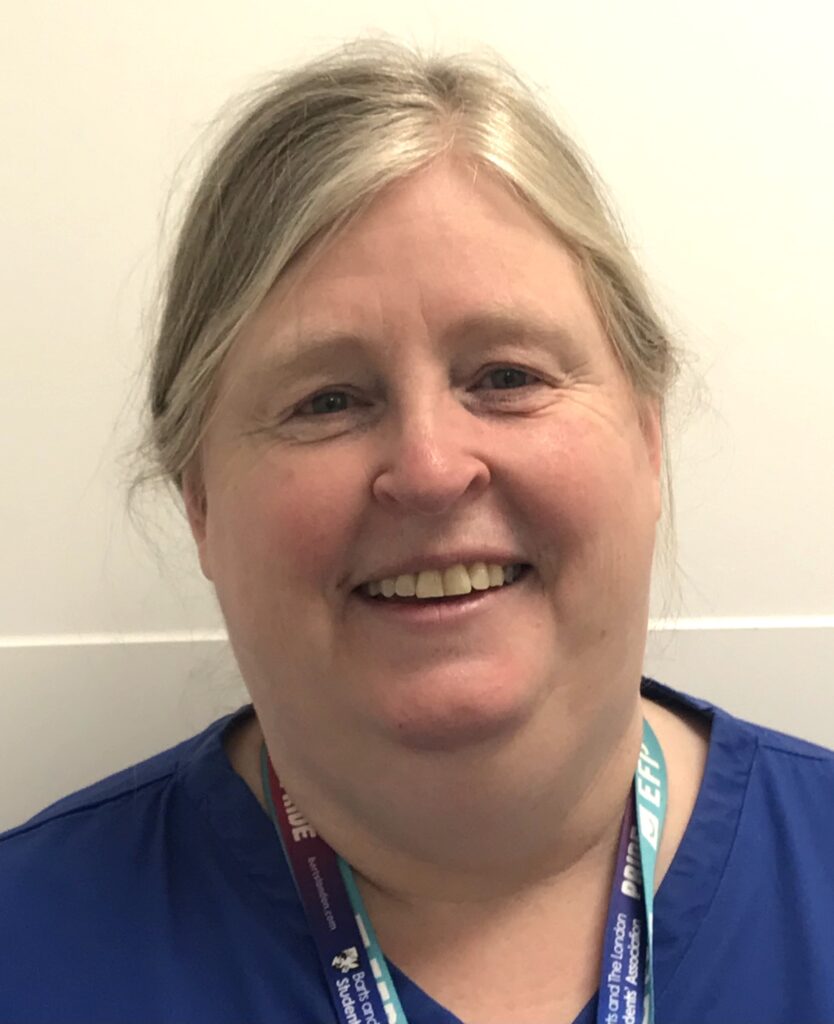Marie Parker and Jane Clarke have been appointed as Trustees of the College. They are the third and fourth new Trustees appointed since the College opened its doors to members in 2021, with Fred Thomson and Onkar Dhanoya having been appointed in 2022.

(l-r) Marie Parker, Onkar Dhanoya, Jane Clarke and Fred Thomson, Trustees of the College of General Dentistry
Marie Parker FCGDent is the Deputy Programme Director of Hygiene and Therapy at University College Hospital NHS Foundation Trust London. Since qualifying as a dental nurse, she has worked in various areas of dentistry and completed a number of leadership and management qualifications, as well as a Master’s in Education. An advocate and promoter of dental nursing careers, and of improving the accessibility of education and training for all registered dental care professionals, she has been involved in the training and education of dental nurses and other members of the dental team throughout most of her career. She is a past Chair and Trustee of the National Examining Board for Dental Nurses, and Co-chair of the Dental Trailblazers group.
Dr Onkar Dhanoya FCGDent has been Principal Dentist at Honour Health, a mixed NHS-and-private dental group, since 1986, providing treatments including dental implants, facial aesthetics and orthodontics at its three practices across the North East of England. He graduated from Newcastle University in 1985, is a Fellow of the International College of Dentists and represented the Yorkshire and Northern region on the FGDP National Board, and later on the CGDent Council, from 2014-22. Chair of North Tyne LDC, and past President of the BDA’s Northern Counties branch, he has been a clinical teacher at Newcastle Dental Hospital since 1995 and a Director of Dental Protection since 2019. He served two terms as Vice Dean of the FGDP, was an MJDF examiner for ten years, and chaired the FGDP’s Equality, Diversity and Inclusion Programme Board.
Jane Clarke is a governance specialist in the professional body and not-for-profit sectors, and since retiring in 2020 has been appointed a Director of Landscape Services, Trustee of the Landscape Institute, and an Independent Person for a group of borough councils in Surrey. Previously she was Director of Governance Support and Group Secretary at the Royal College of Nursing; Company Secretary of its commercial subsidiary, RCNi; and a Founder of the RCN Foundation. From 1995-2006 she worked for the National Trust as Assistant Director for Committee Services and Administration, Deputy Secretary then Secretary, and prior to that she enjoyed a seventeen-year career at the Royal Institution of Chartered Surveyors, where her posts included Head of the Executive Office and Director of Policy Coordination.
Fred Thomson is a solicitor specialising in procurement law. After graduating in computing, he became an IT systems engineer and consultant and programme manager, later completing a Bachelor’s in Law and Postgraduate Diploma in Legal Practice. He also holds an MSc in Engineering and Management, an LLM and a Level 7 Diploma in Strategic Management, and is a Member of the Institute of Engineering and Technology, Fellow of both the Institution of Analysts and Programmers and the Institute of Leadership, and a Chartered Fellow of the Chartered Management Institute. An officer in the Royal Naval Reserve for over 20 years, he holds the rank of Commander. He was also a mentor for the charity IntoUniversity, which helps young people achieve the best results they can in accessing higher education.
Members of the Board of Trustees, who serve three-year terms of office, are accountable for the fulfilment of the College’s legal and regulatory duties as a charity, and for ensuring the proper running of the organisation.
The other members of the Trustee Board are Dr Mick Horton FCGDent, former Dean of the Faculty of General Dental Practice UK, who has served since 2017 and became Chair earlier this year; Dr Janet Clarke MBE FCGDent, former Deputy Chief Dental Officer for England, who joined the Board in 2019 and served as Chair from 2020-23; and Neil Sawbridge, an experienced banking and leasing Chief Financial Officer who has been an independent Trustee since 2017.
The new appointees have succeeded Dr Kevin Lewis FCGDent, former Dental Director at Dental Protection, who served on the Board from 2017-22 and is now a College Ambassador; fellow former dental Trustee Professor Liz Kay MBE FCGDent, Foundation Dean and Emeritus Professor at Peninsula Dental School (2019-22); Kate Gregory, a legal consultant and qualified litigator (2019-22); and fellow former independent Trustee Lesley Pan, who specialises in building and developing charitable enterprises (2019-23).
Other former members of the Board include Professor Sir Nairn Wilson CBE FCGDent, Past President of the British Dental Association and Honorary Founding President of the College, who served as Chair from 2017-20; Dr Ian Mills FCGDent, former Dean of the Faculty of General Dental Practice UK, who was a Trustee from 2018-21; and Duncan Rudkin, Chief Executive and Registrar of the General Pharmaceutical Council, who served from 2017-19.

